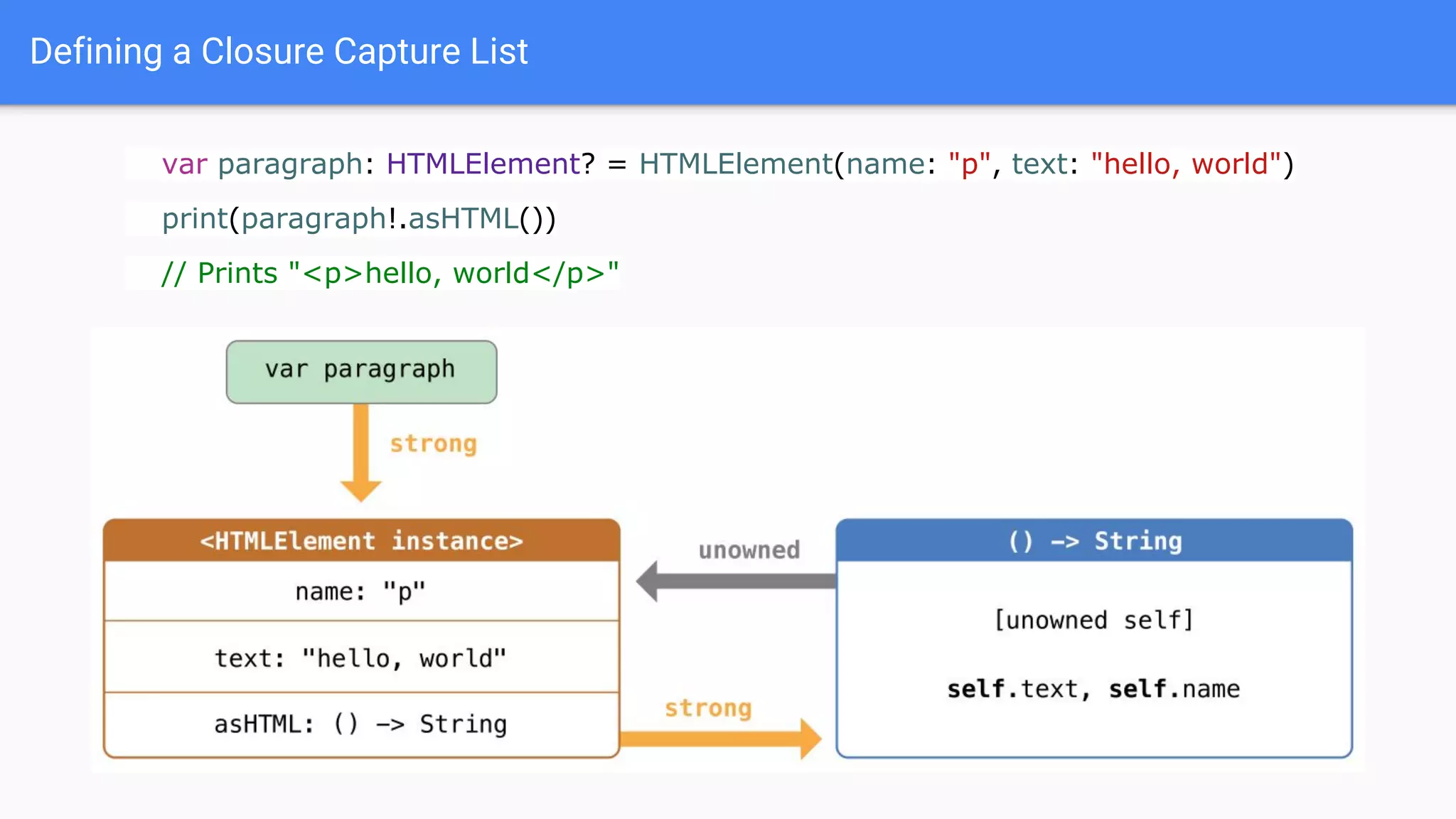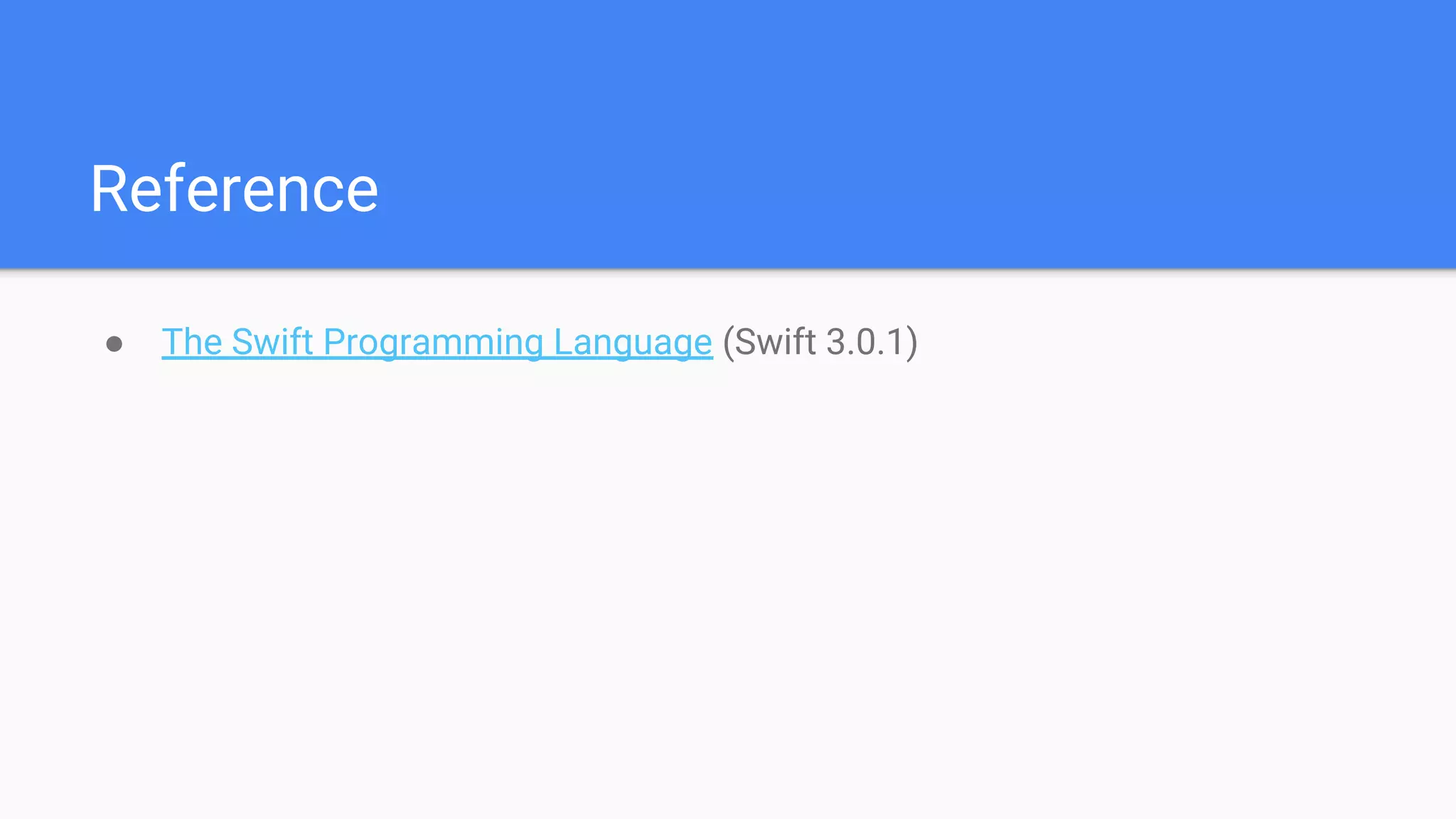The document discusses automatic reference counting (ARC) in Swift, including how it manages memory by counting strong references to objects and releasing memory when the count reaches zero. It describes how ARC handles strong reference cycles between class instances, and how they can be resolved through weak and unowned references. The document also discusses how closures can cause strong reference cycles and how capture lists can help resolve them by specifying weak or unowned references.
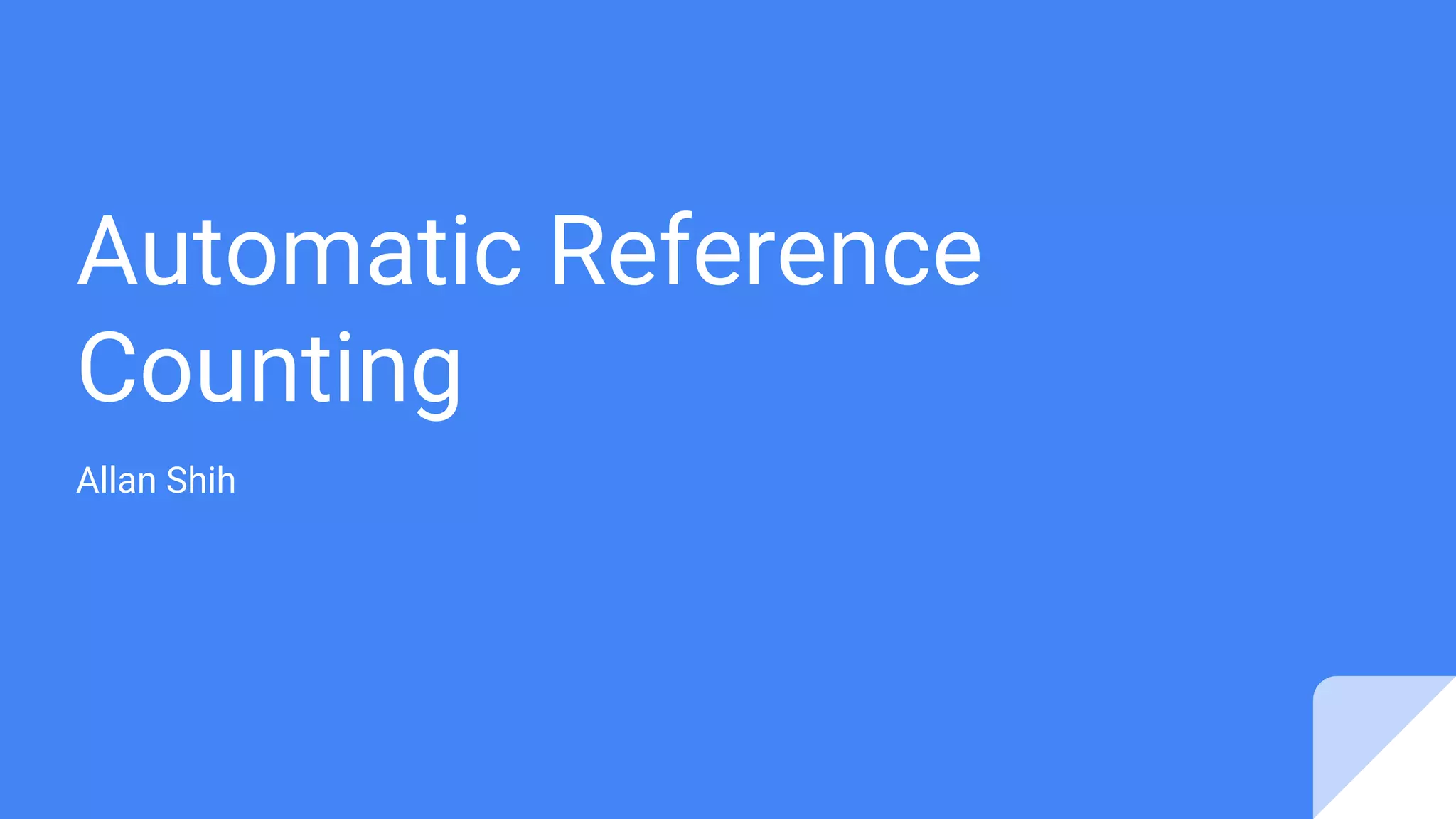
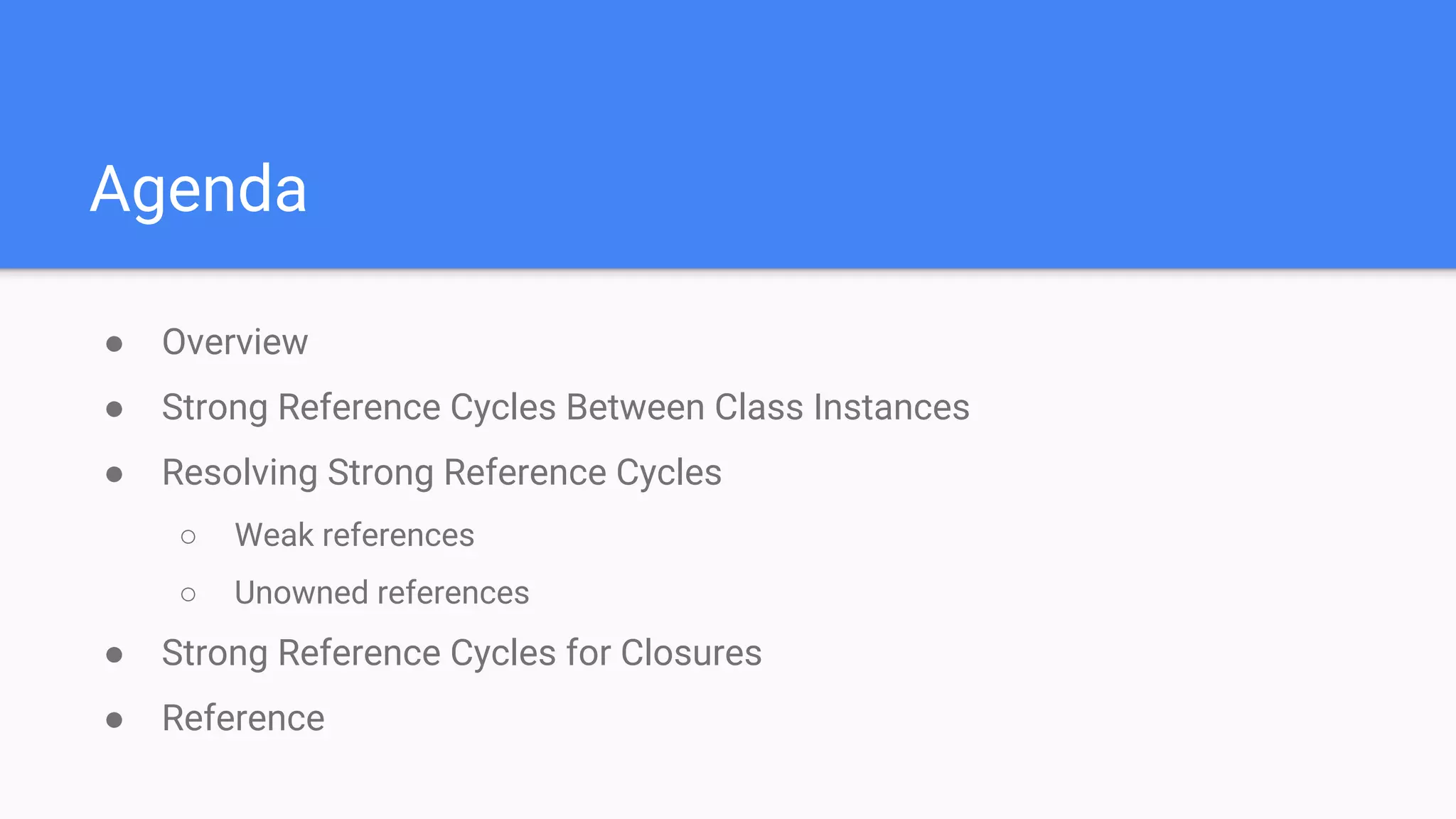
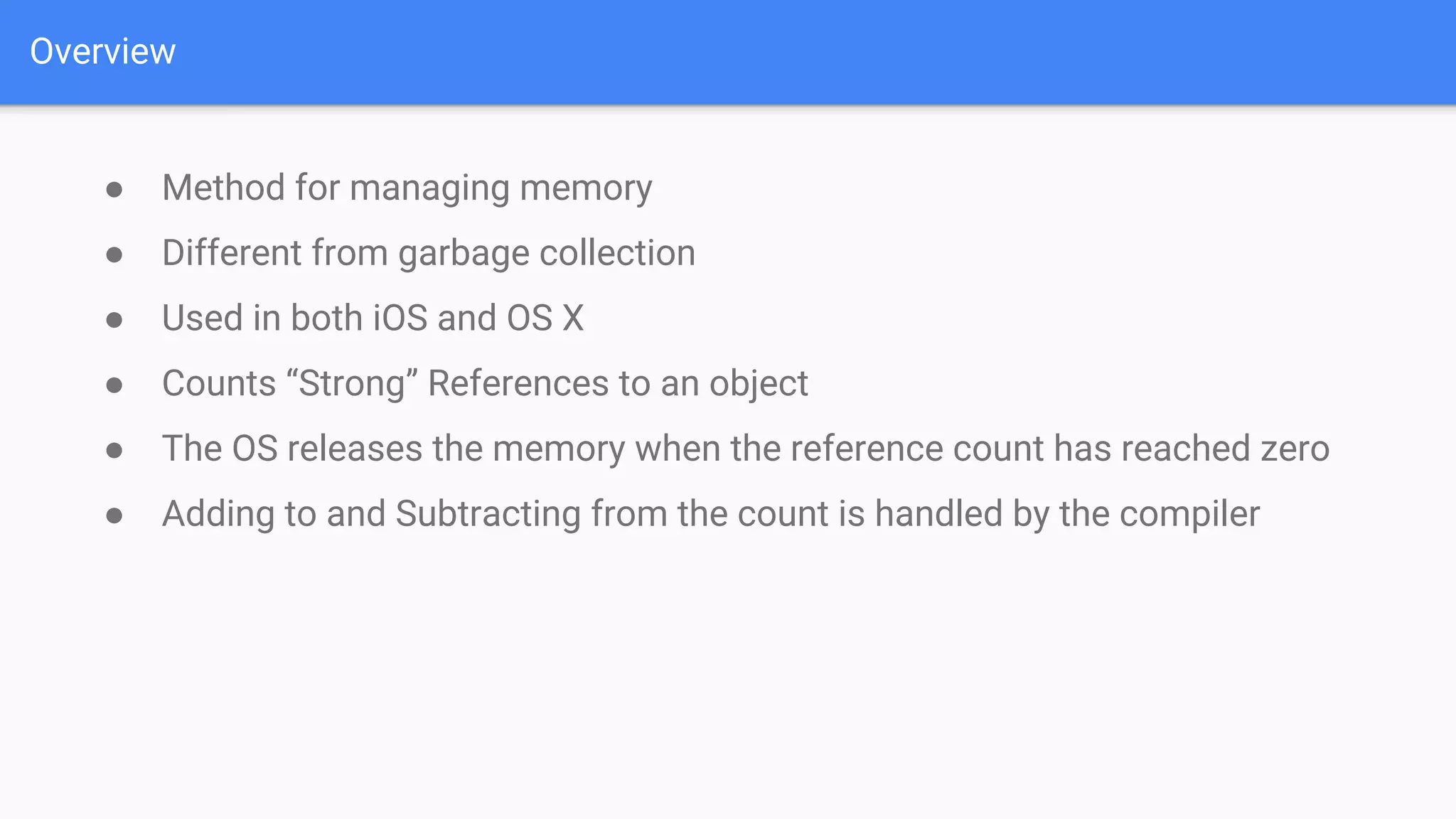
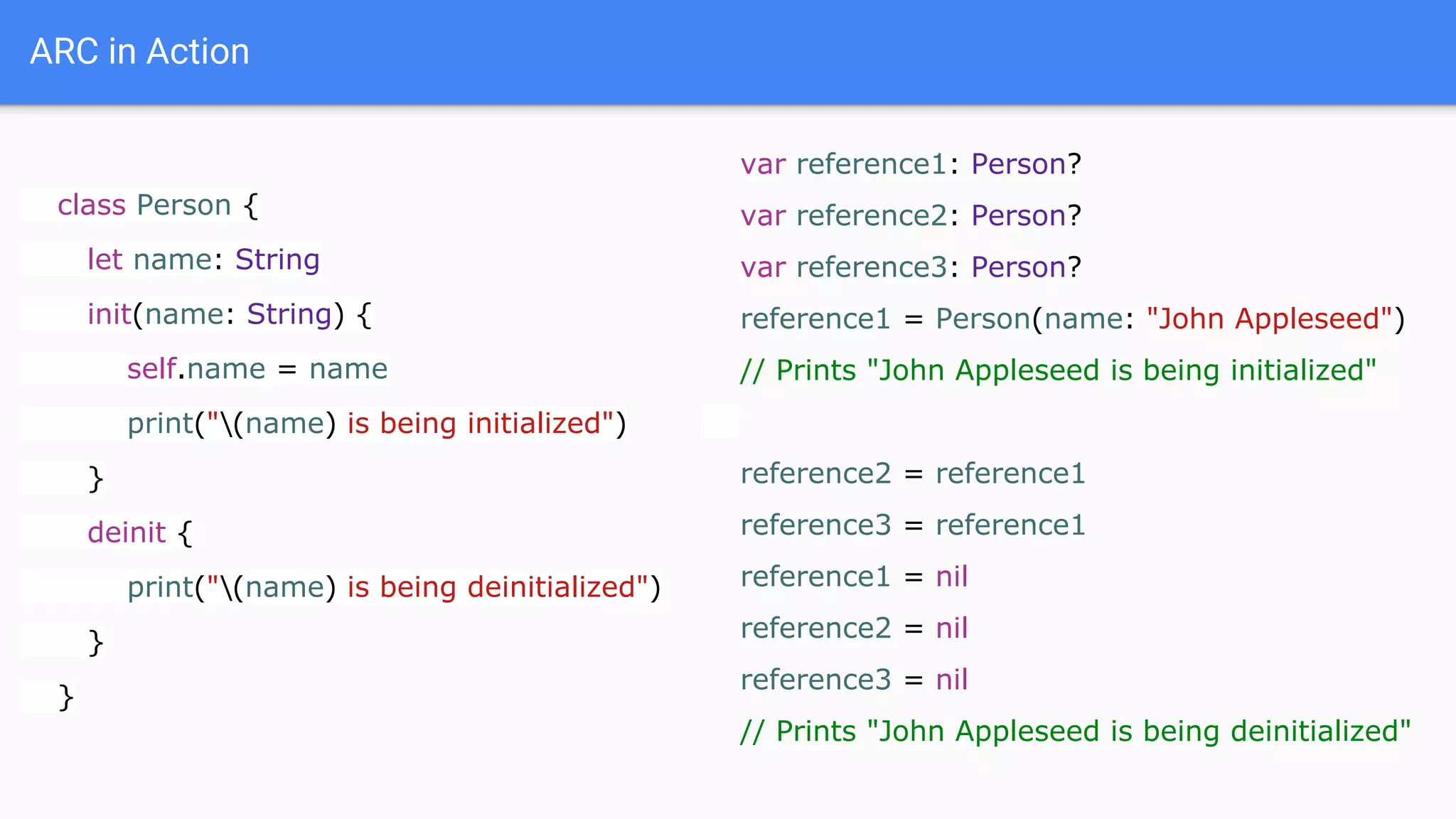
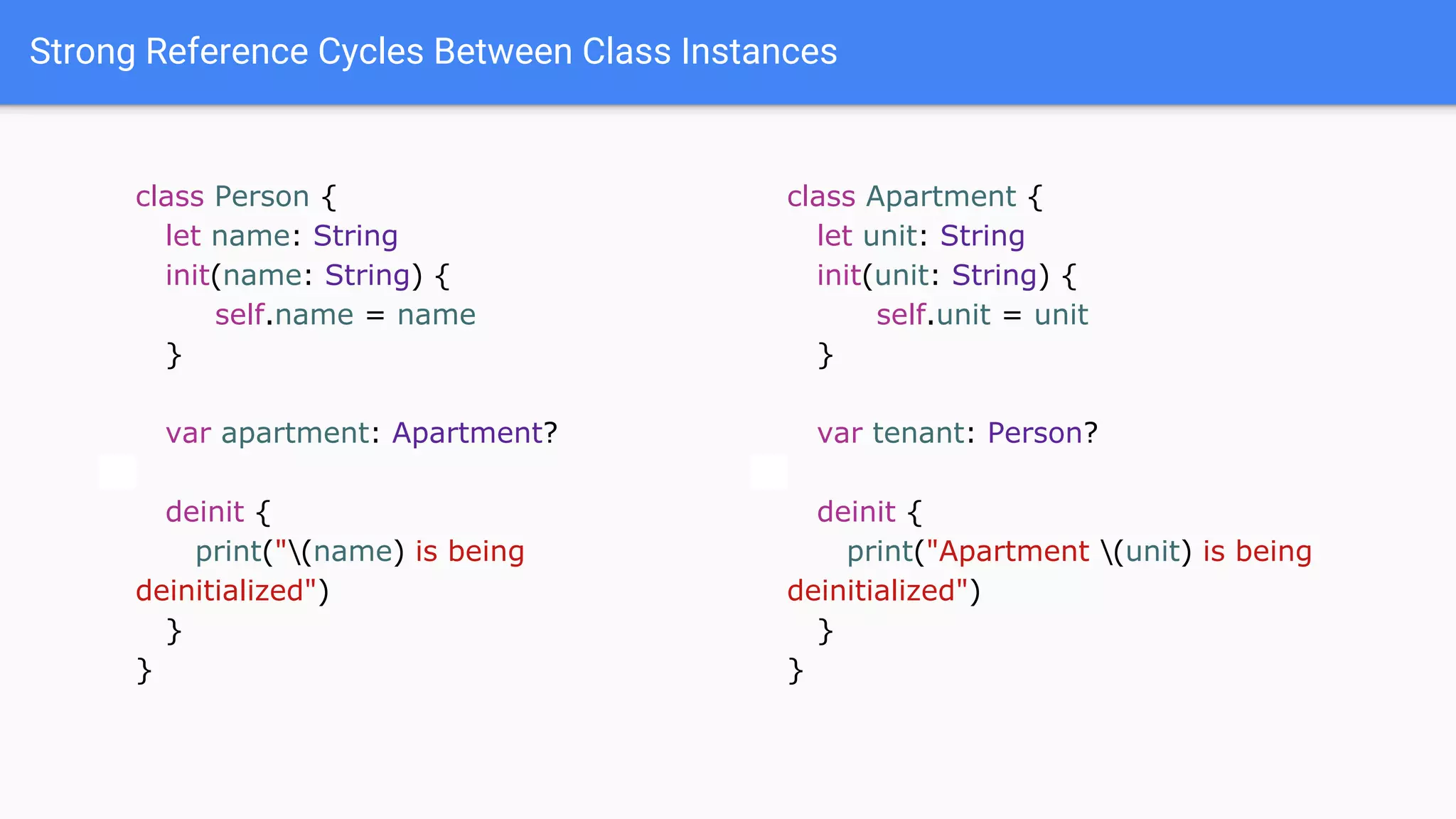
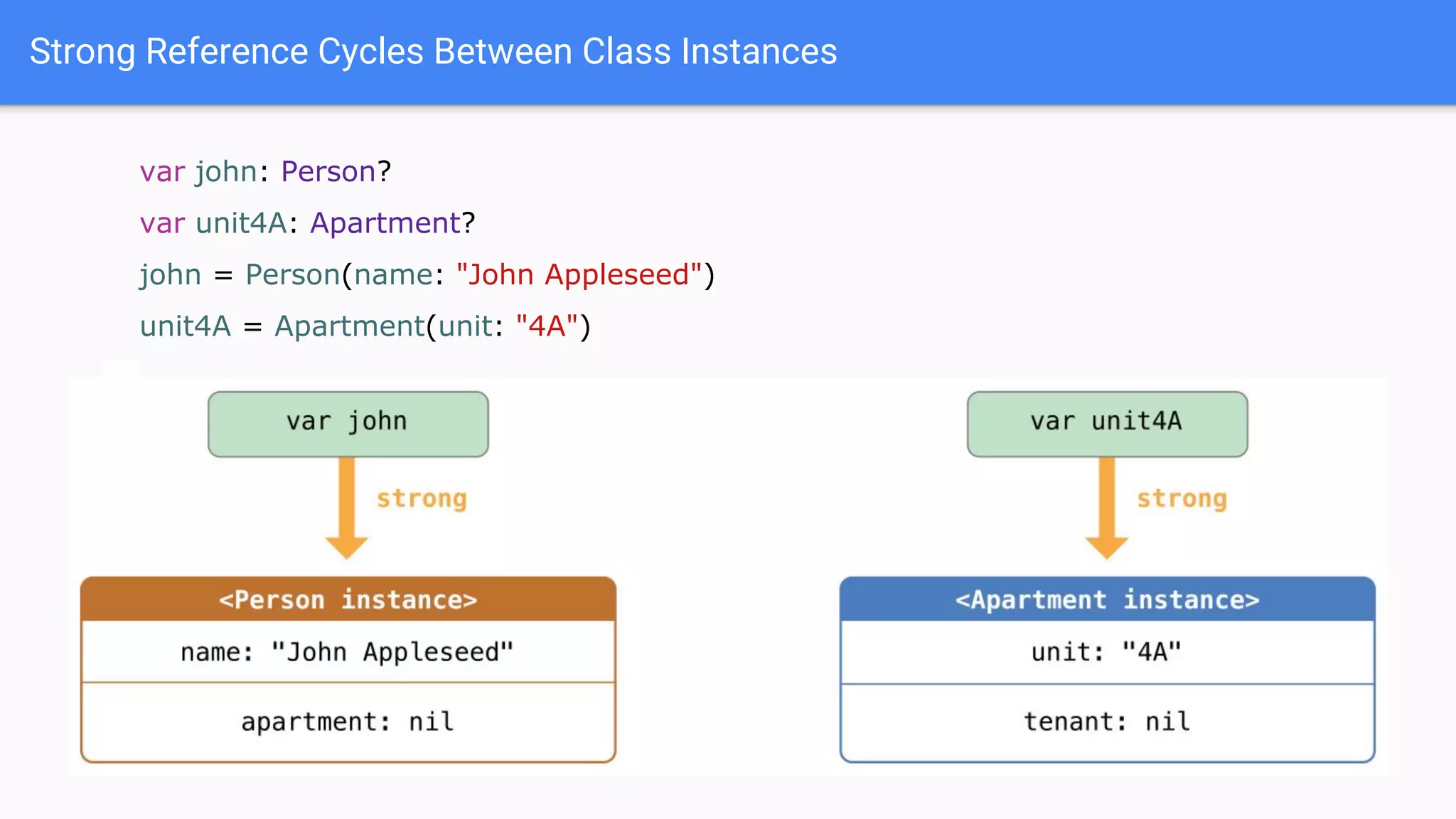
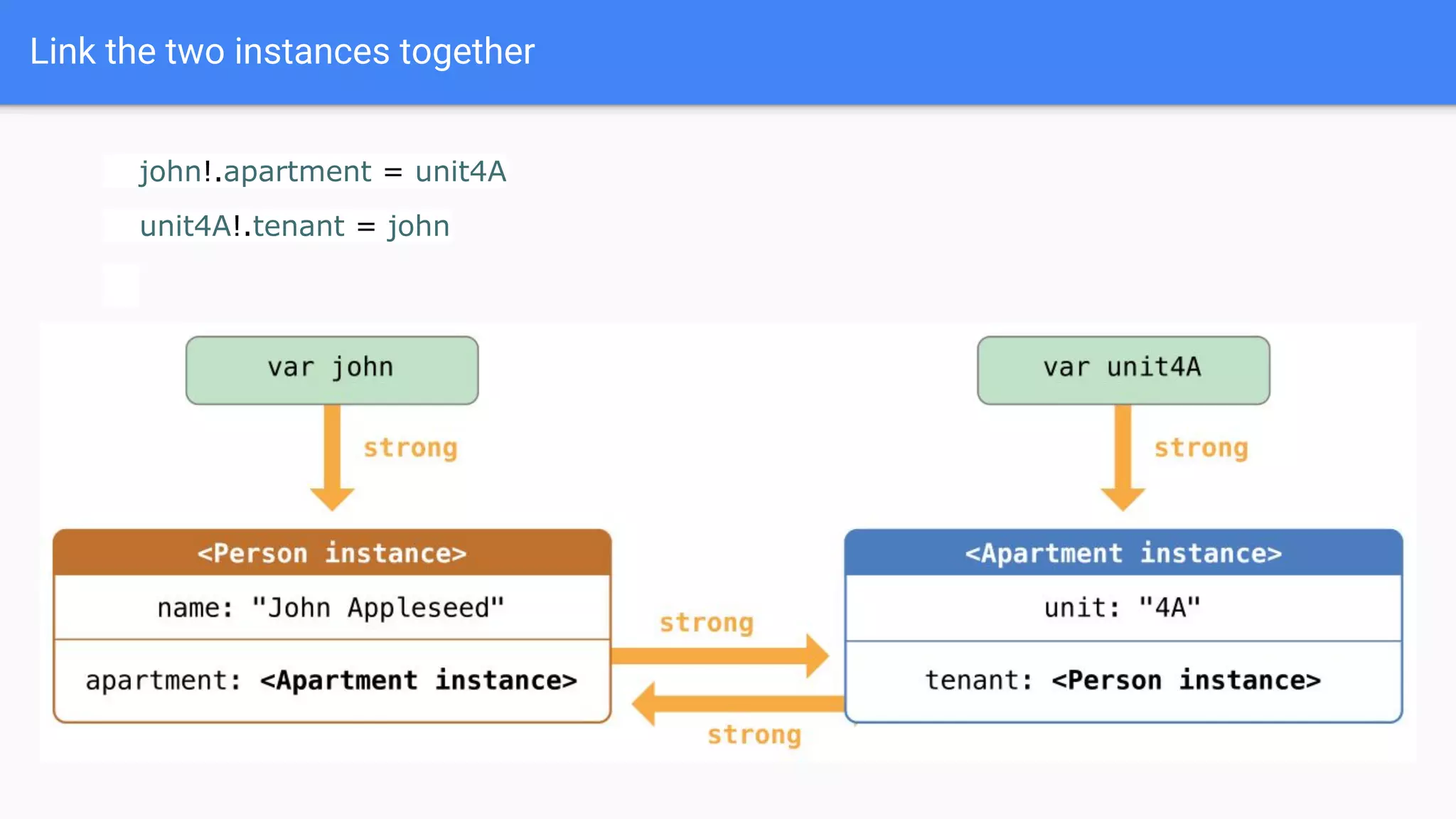
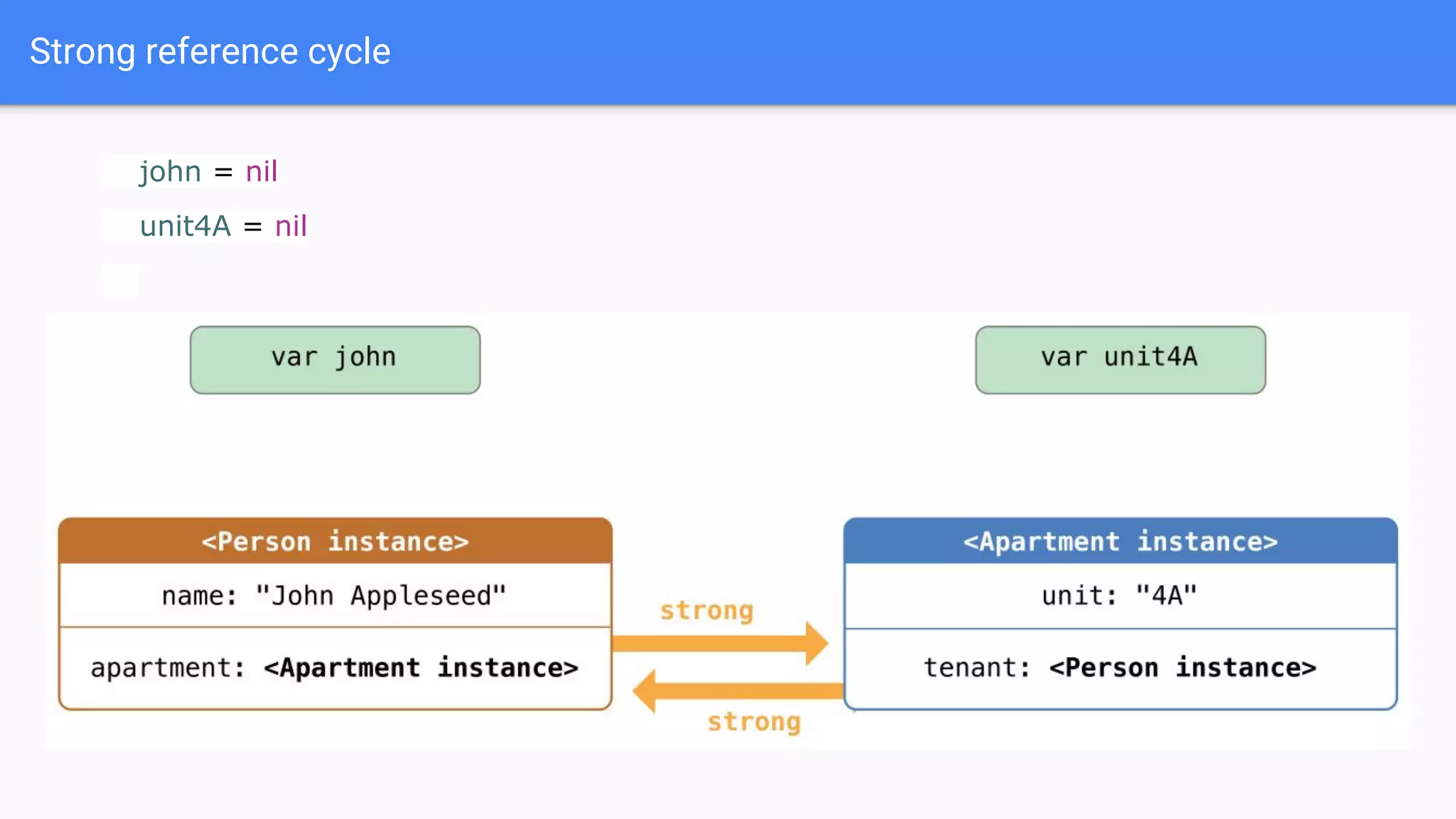
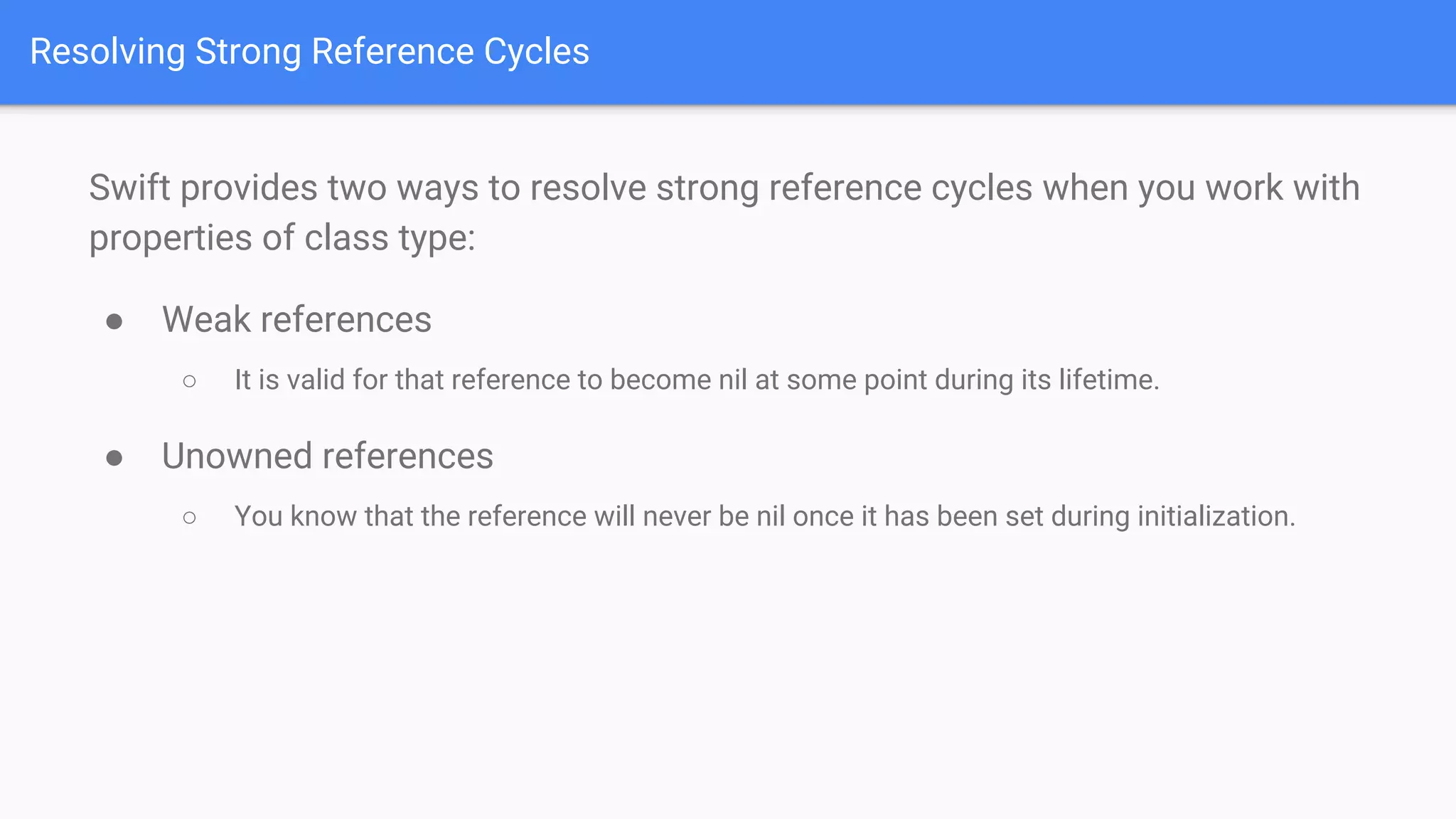
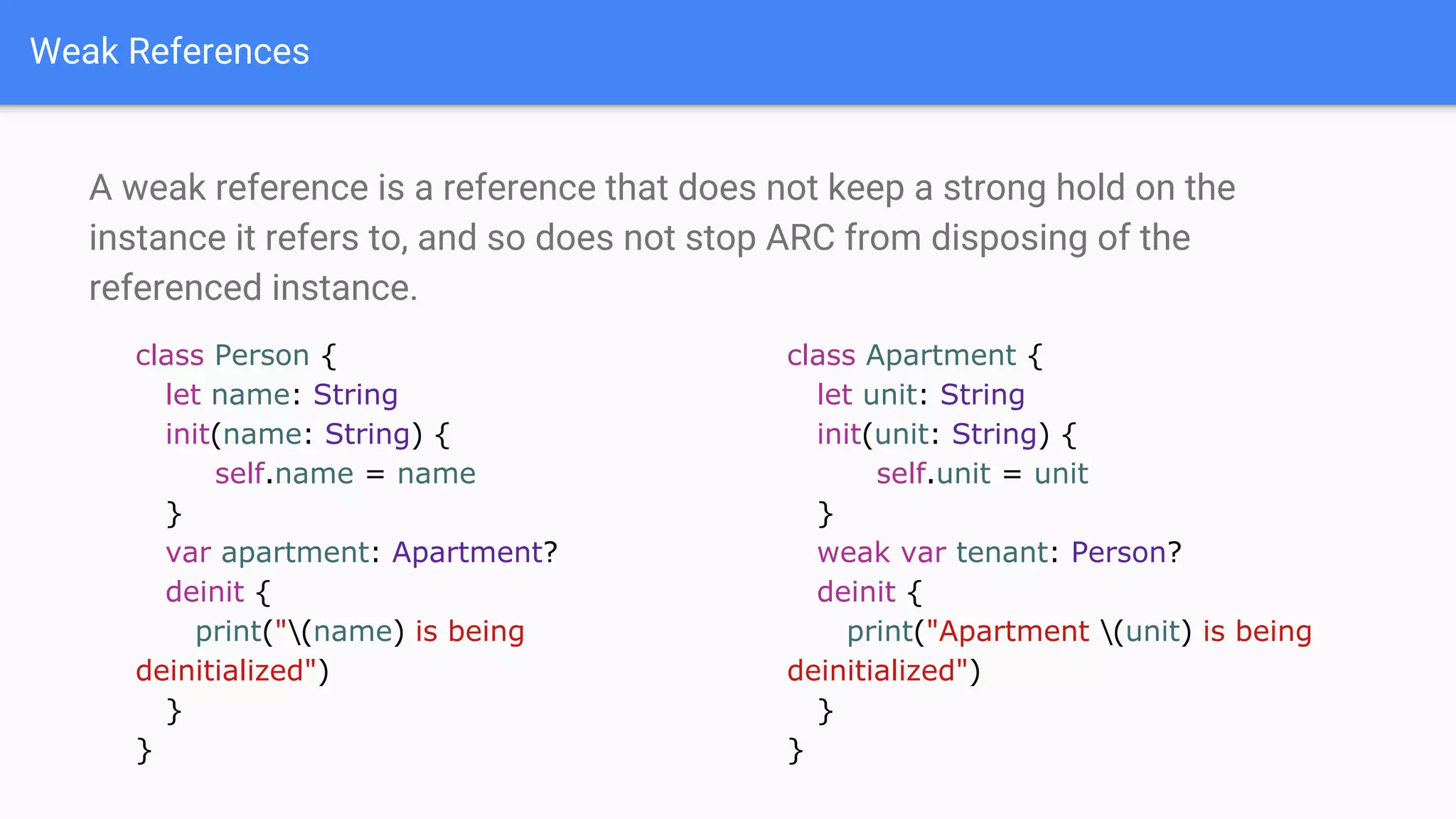
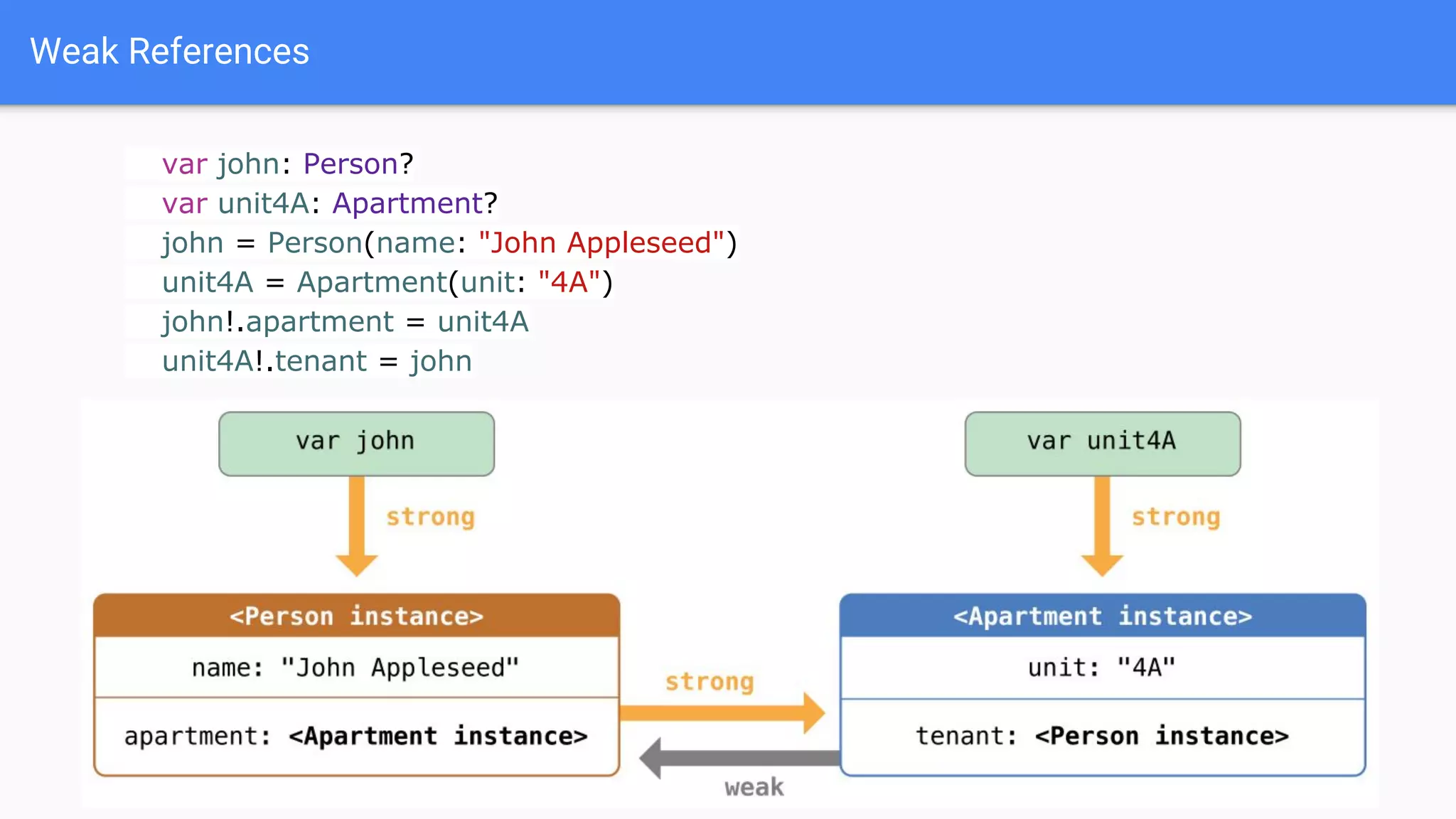
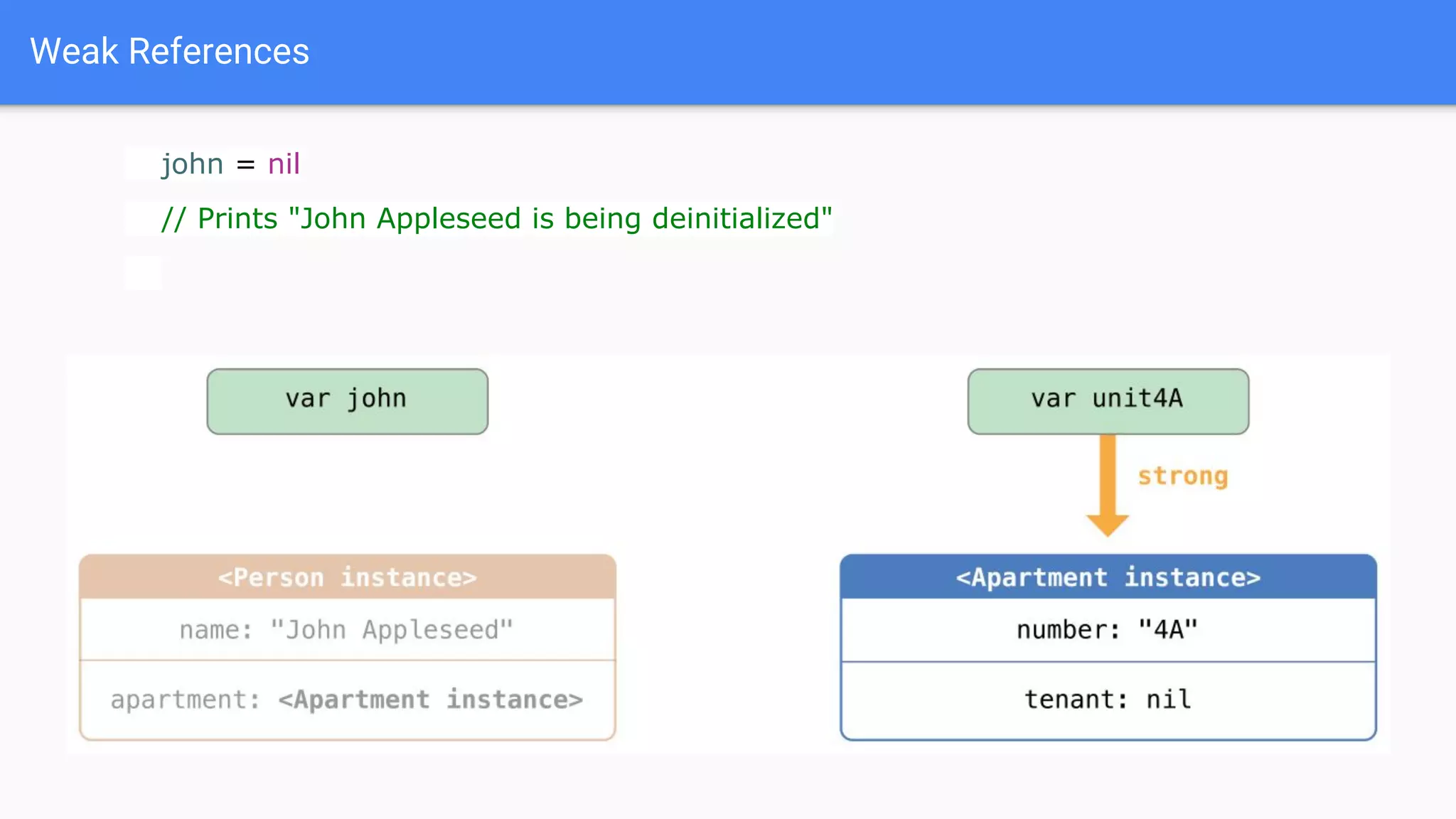
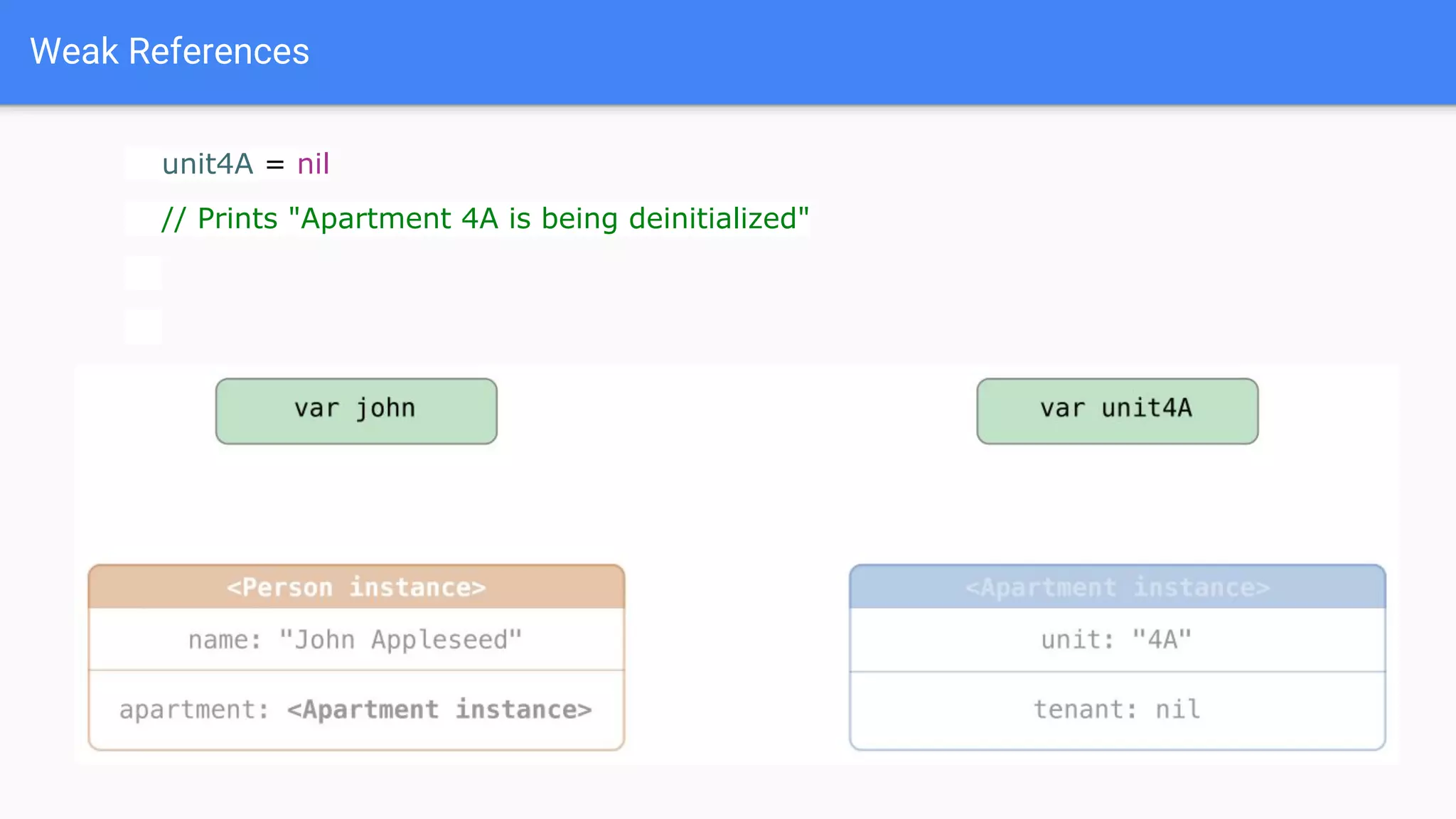
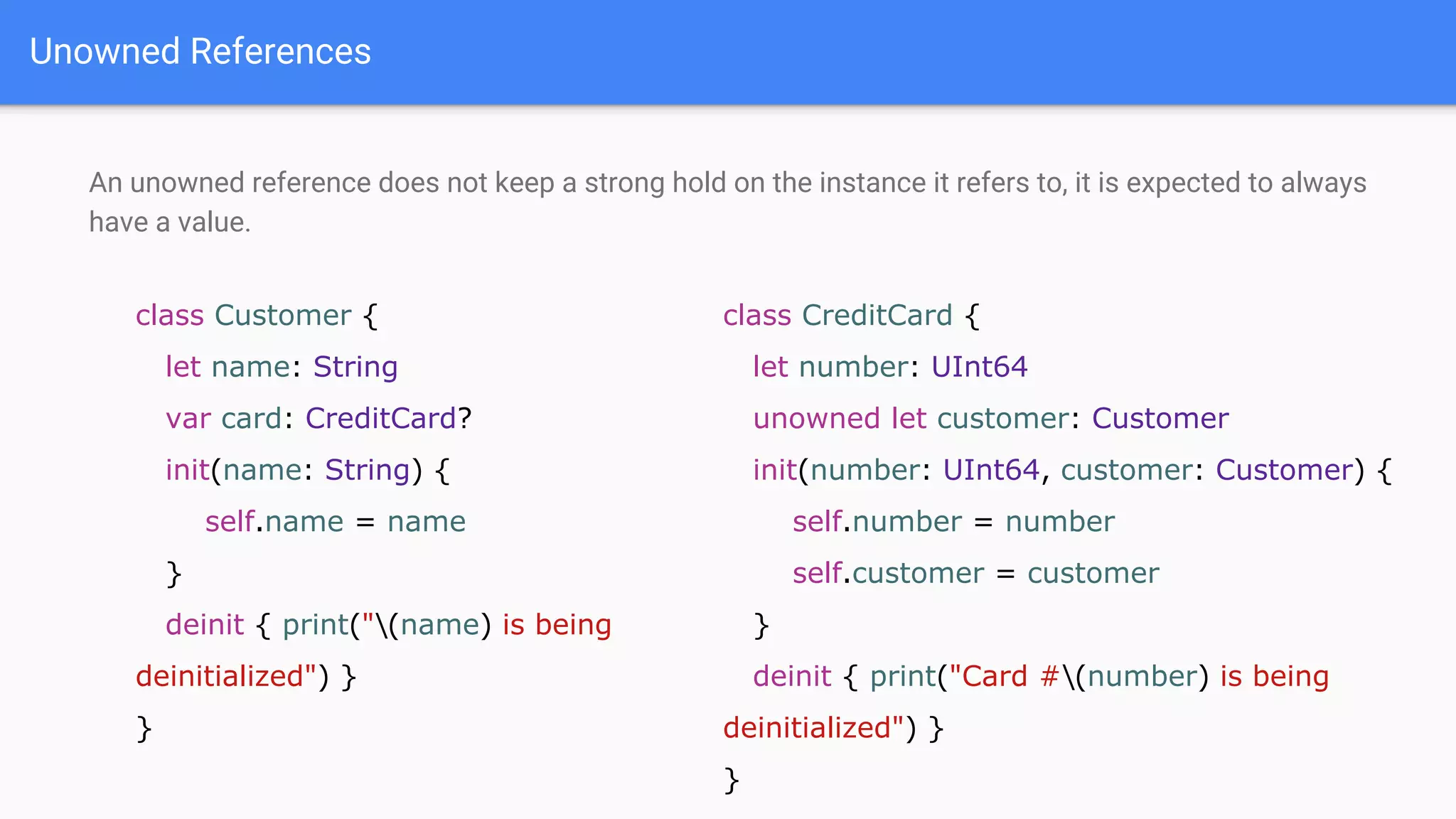
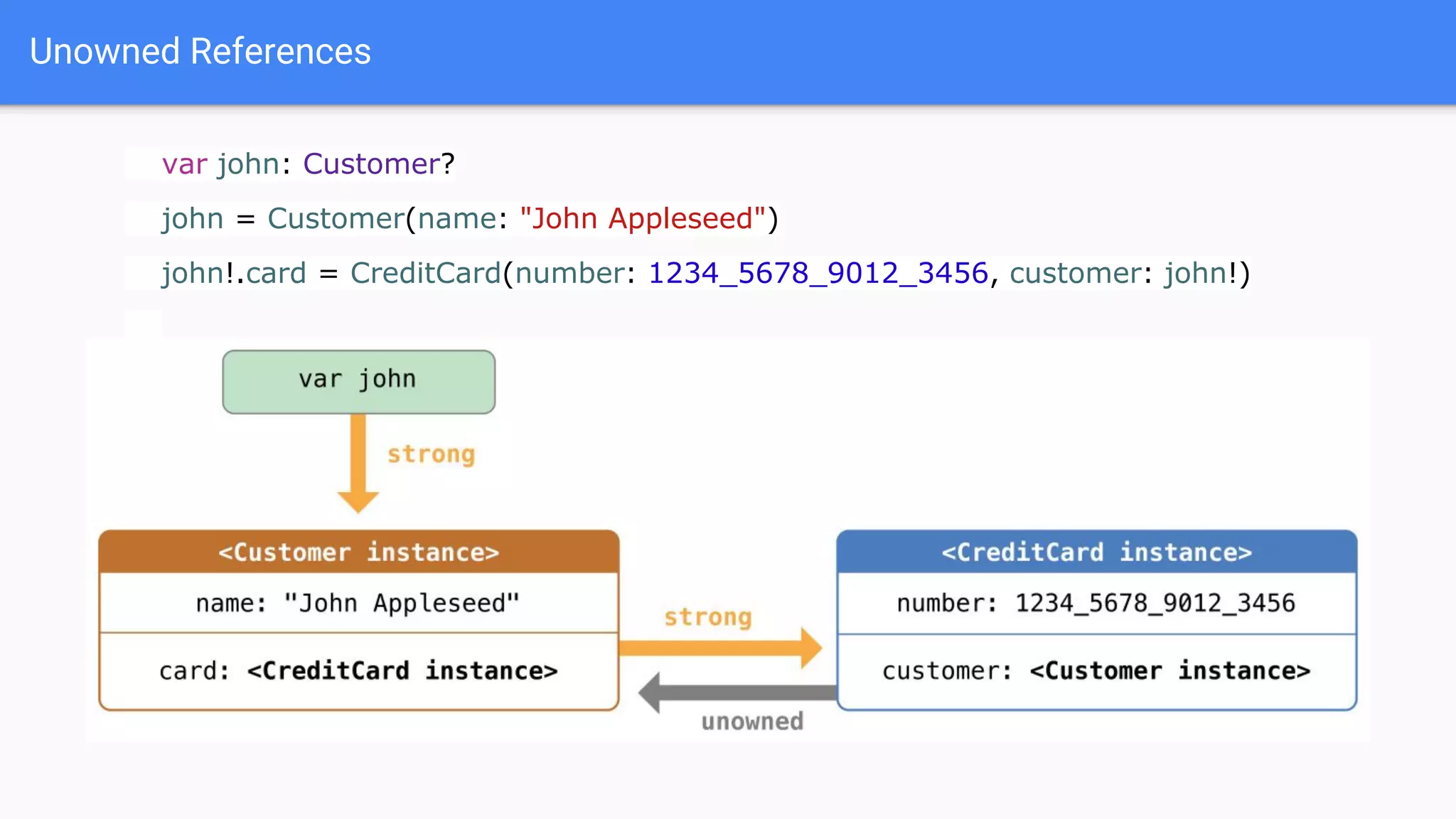
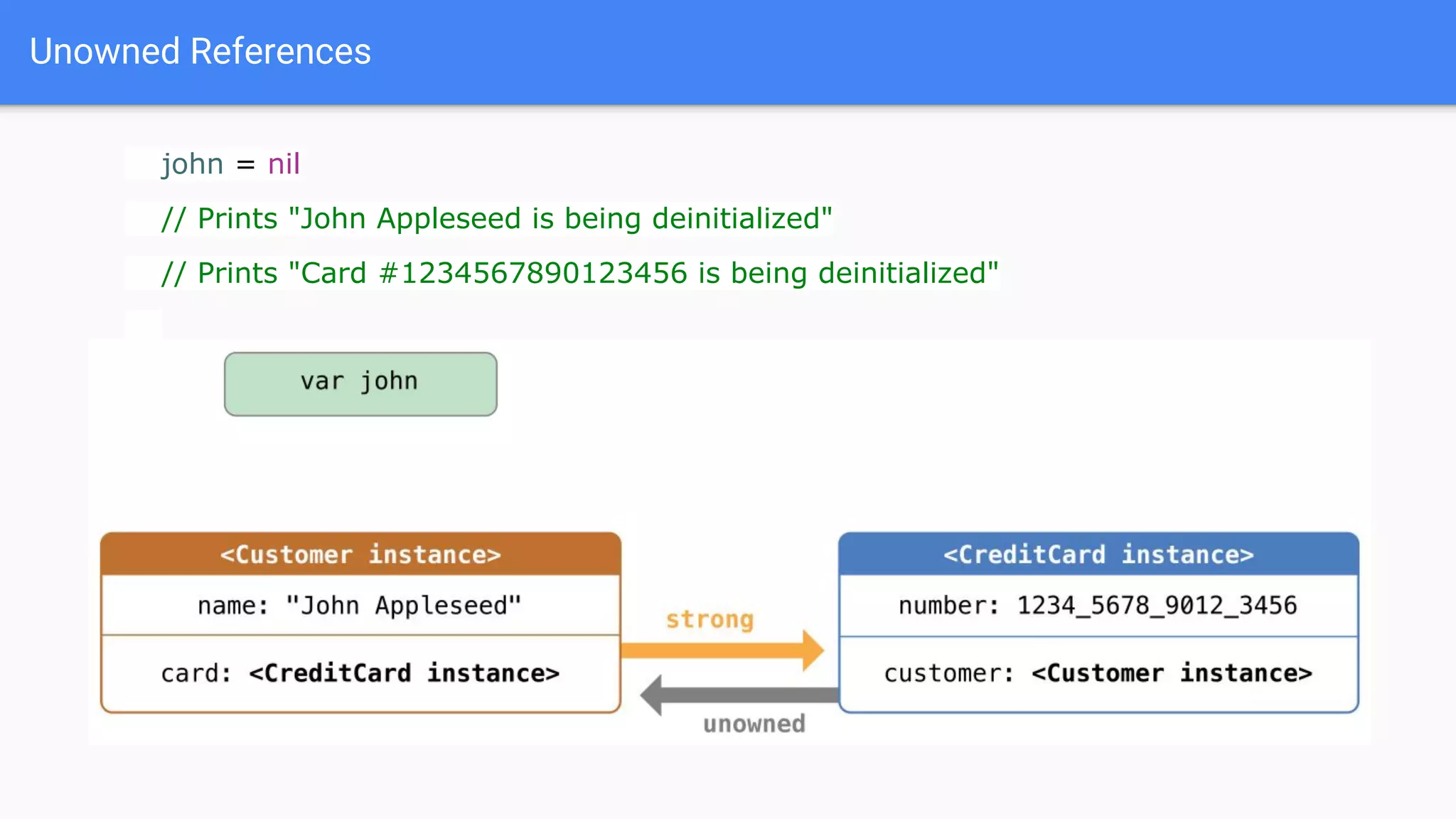
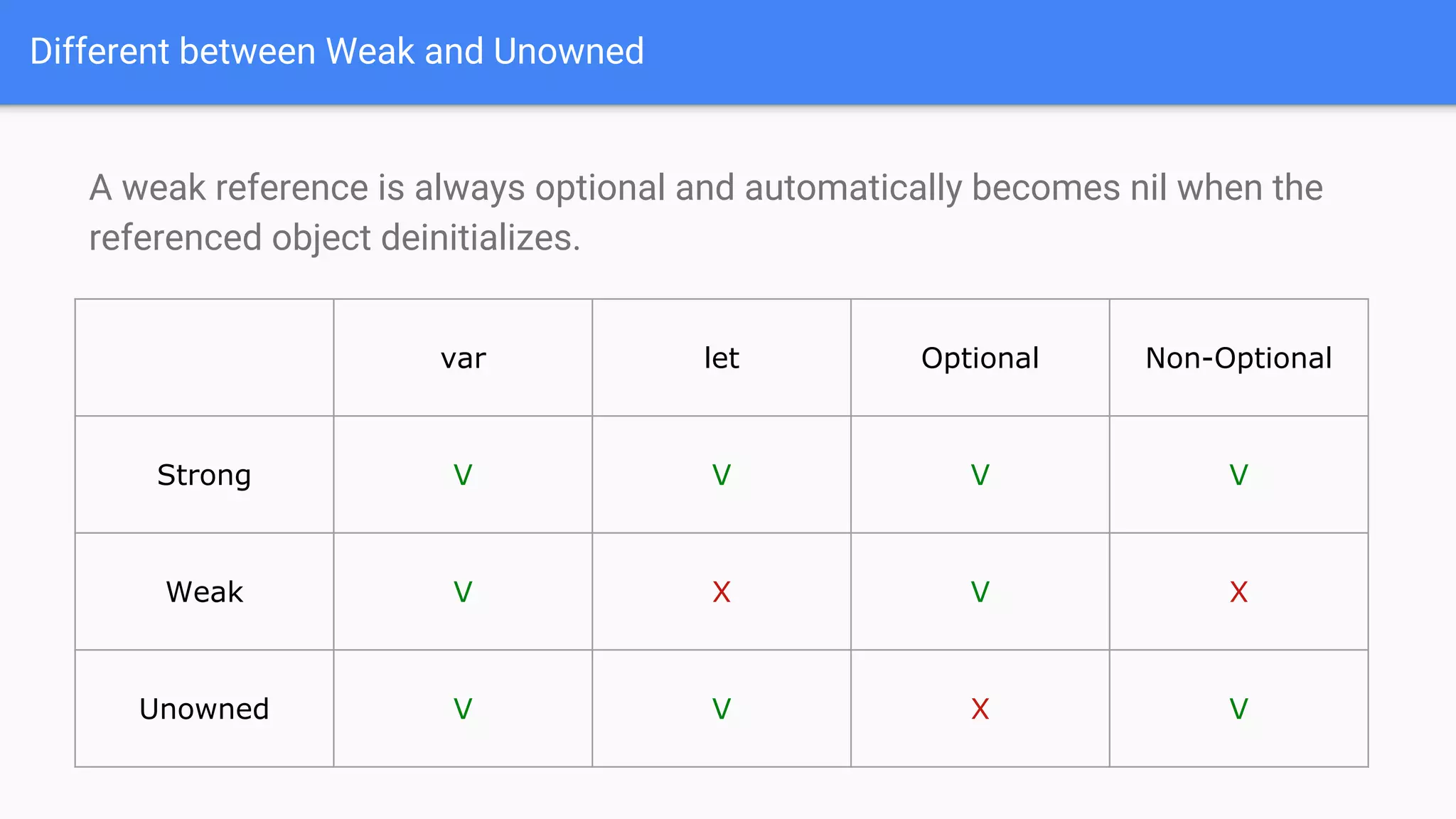
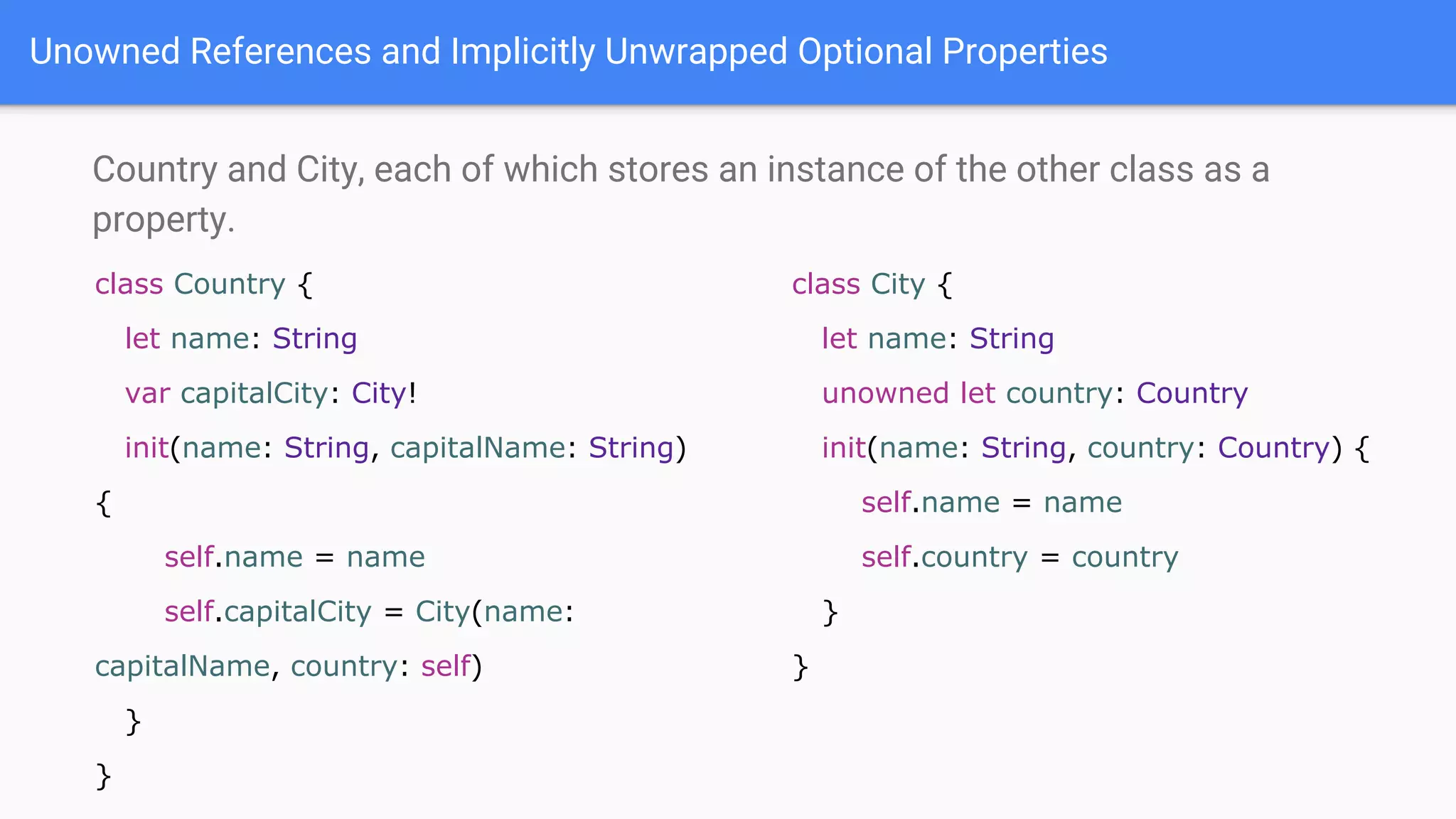
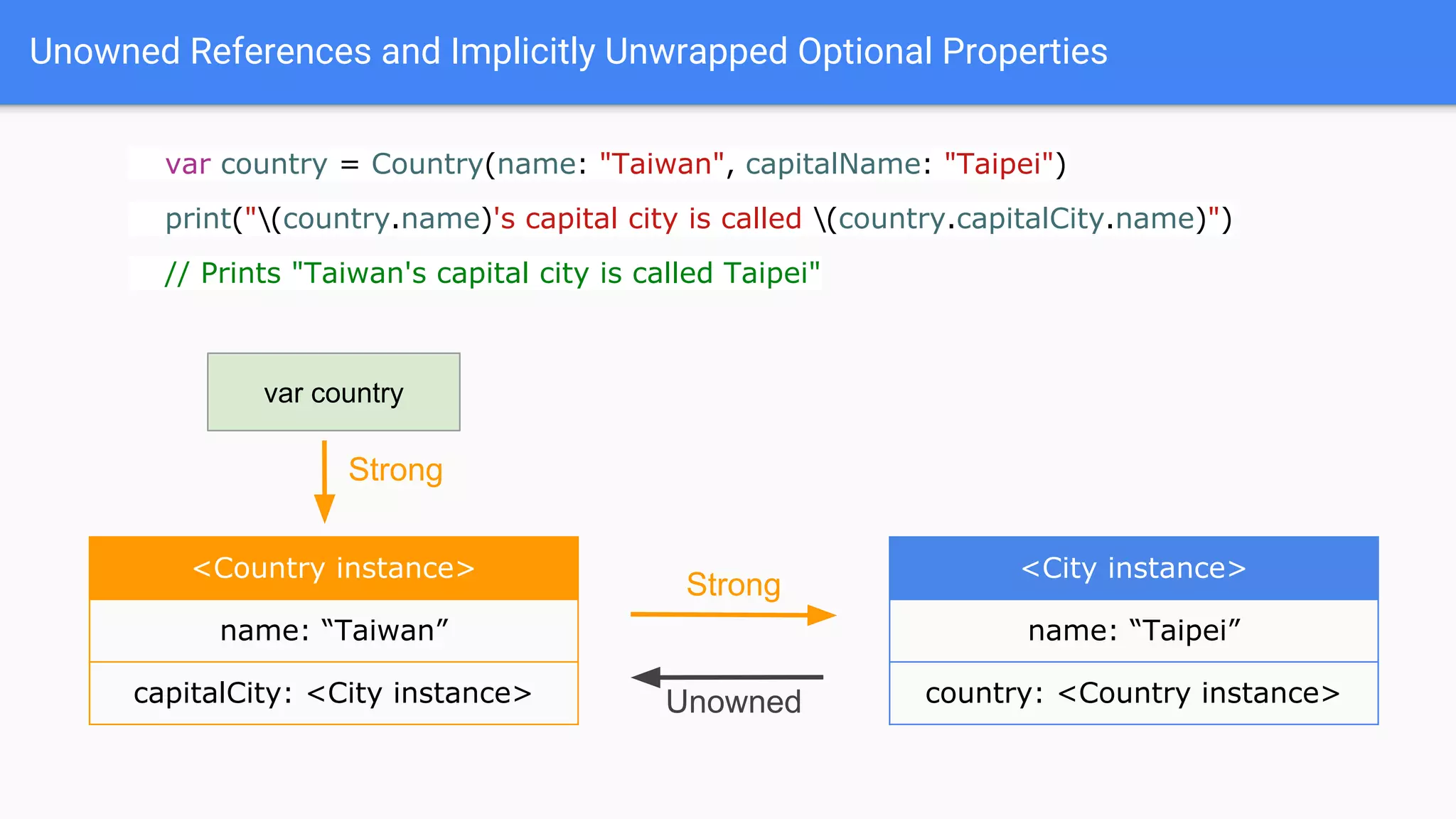
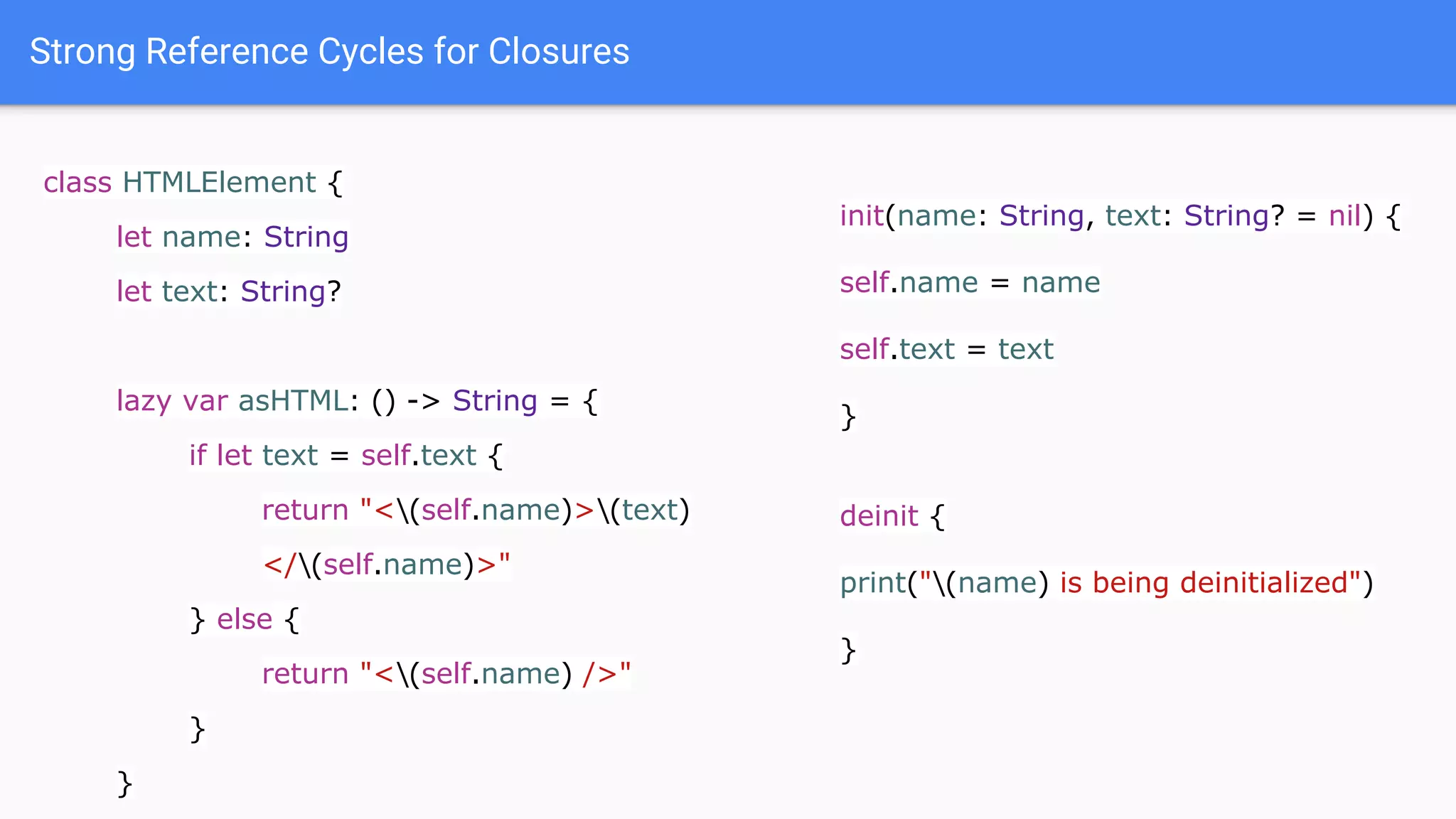
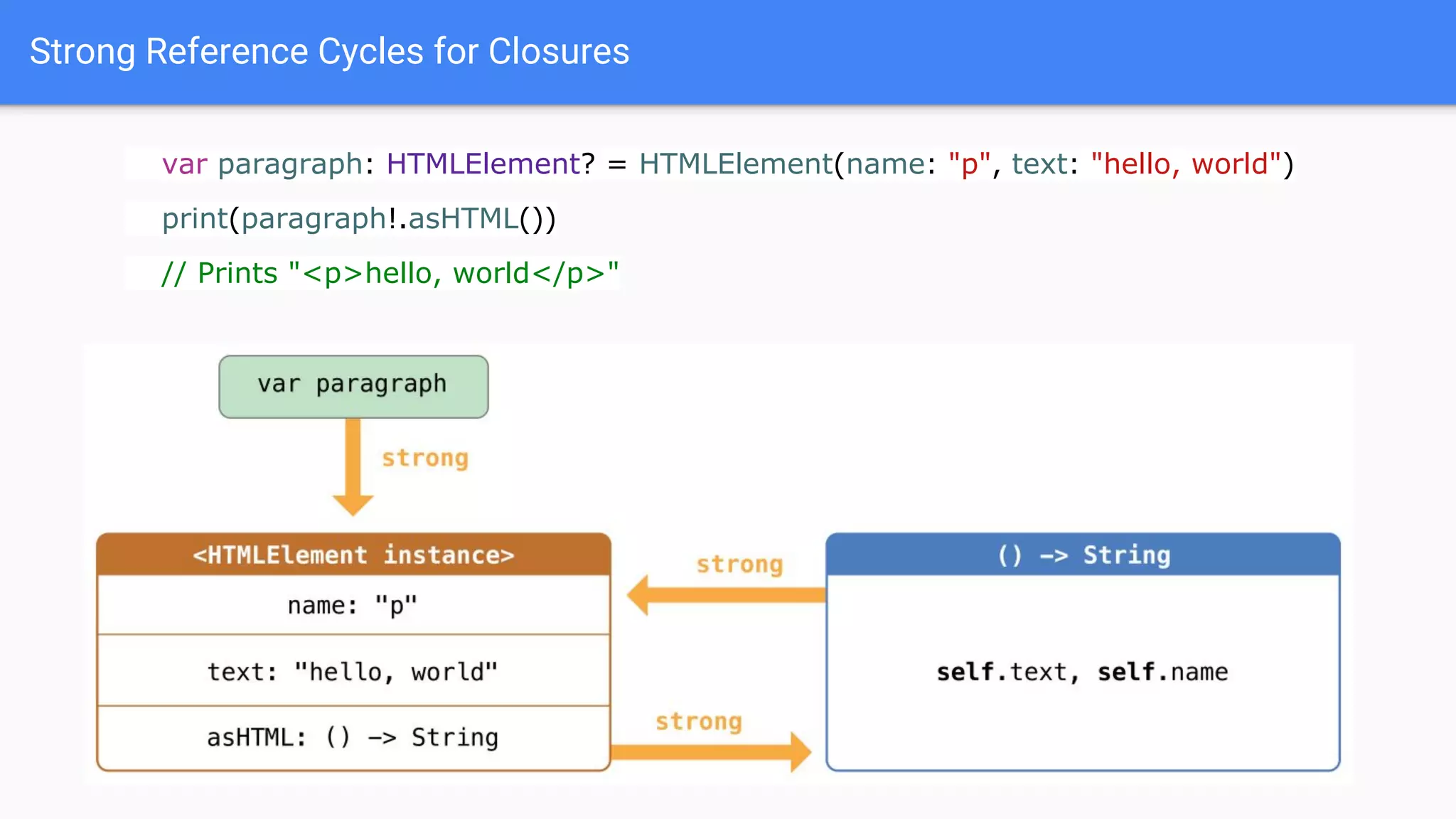
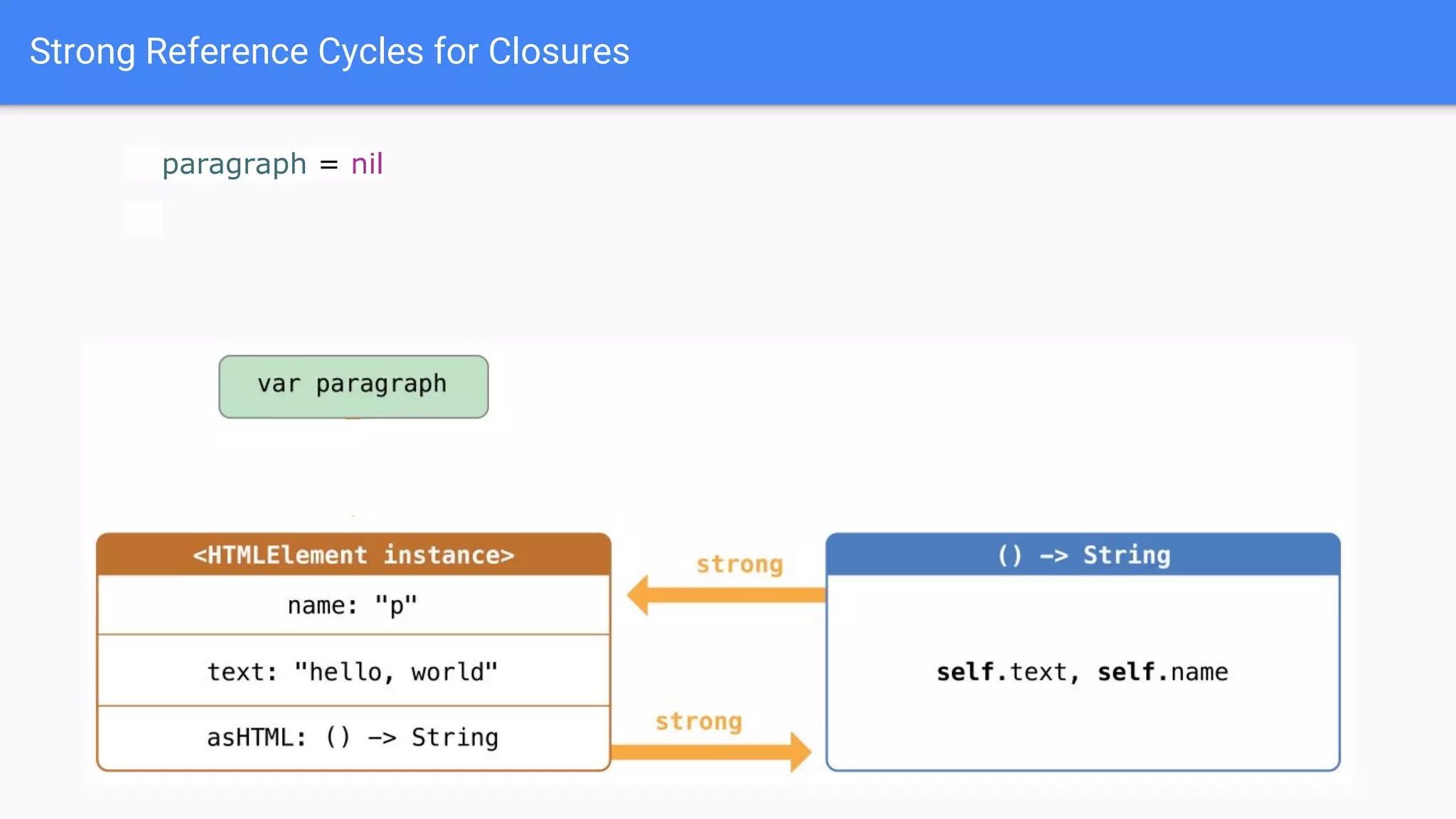
![Defining a Closure Capture List
lazy var someClosure: (Int, String) -> String = {
[unowned self, weak delegate = self.delegate!] (index: Int, stringToProcess:
String) -> String in
// closure body goes here
}
lazy var someClosure: () -> String = {
[unowned self, weak delegate = self.delegate!] in
// closure body goes here
}](https://image.slidesharecdn.com/automaticreferencecounting-180706030116/75/Automatic-reference-counting-in-Swift-23-2048.jpg)
![Defining a Closure Capture List
class HTMLElement {
let name: String
let text: String?
lazy var asHTML: () -> String = {
[unowned self] in
if let text = self.text {
return "<(self.name)>(text)
</(self.name)>"
} else {
return "<(self.name) />"
}
}
init(name: String, text: String? = nil) {
self.name = name
self.text = text
}
deinit {
print("(name) is being deinitialized")
}](https://image.slidesharecdn.com/automaticreferencecounting-180706030116/75/Automatic-reference-counting-in-Swift-24-2048.jpg)
